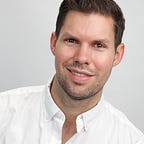Khosla’s Healthcare Investment Thesis
No Time for Incremental Change
Every would agree that Vinod Khosla is a visionary. The former Kleiner Perkins investor earned billions of dollars through bets on companies like SunMicrosystems and Juniper Networks, and his own firm has set out to solve huge problems in difficult sectors like clean tech and space tech.
As for medicine, Khosla also believes that 80% of what physicians currently do will be obsolete within the next few decades, replaced by software, hardware, and testing. Physicians roles will shift to providing more human-based support to patients, completing tasks that require empathy and ethics. Internal medicine will be the most drastically transformed in the near term, but procedure based surgery will follow soon after. (For his full view, read his 110-page thesis here.)
This change will come first with the rise of digital health technologies:
Further, though many different disciplines will contribute to the innovation in medicine like biological research or new device development, I am mostly concerned with the contributions of digital health technologies (smart hardware, software, tests) to medical innovation. This should not be underemphasized, as these contributions, though potentially the most significant, are also the most variable, and hardest to predict in direction, timelines and scope and the ones that will face most resistance from human practitioners and organizations who will likely try and delay them.
In a recent interview, Khosla laid out how he evaluates startups and teams for investment:
I never look at CPT codes, whether something is billable, what the business model is. I fundamentally look at where’s the value-add in this, what’s new and different. Healthcare startups I hate are the ones who help people increase their billing. Zero value-add from my point of view. I am uninterested. Not that it’s a bad business. People will make money at it.
I’d rather not make a clinic more efficient. I’d rather start a new one that has a radical set of assumptions. [And a portfolio company is doing exactly that, so stay tuned.]
Coming out with something that isn’t a tweak [of existing systems] and no healthcare experience is generally an advantage, not a disadvantage. Let me postulate the following. No large innovation has come from within a system. Tesla didn’t come out of the automotive industry. SpaceX didn’t come out of Boeing or Lockheed and by the way GM spent millions of dollars trying to do an electric car before Tesla. More money, more resources, more knowledge, too much knowledge. Wal-Mart didn’t innovate retail. Amazon did. NBC and CBS didn’t innovate media. Facebook, Twitter and YouTube did. Genentech didn’t come out of Pharma. It came from a guy who was an associate at Kleiner — Bob Swanson.
So, I am hard-pressed to think of one major innovation that came out of an existing industry. The closest I have come to think of … is Bank of America doing credit cards in the early 1970s.
You have to start thinking from scratch.
What I want to work on and the partners I want to work with have a radical new mindset. Someone is actually looking at a pattern of biomarkers to detect sepsis. Very different. This is a clinician but with a very strong data science orientation and background. They are not thinking traditional sepsis tests. It’s more the mindset. Innovation can come from within the healthcare system. Eric Topol thinks of cardiology very differently even though he is a cardiologist. You want people who are thinking outside tradition. The fact that they happen to know something about healthcare tends to bias them but it’s entirely possible.
